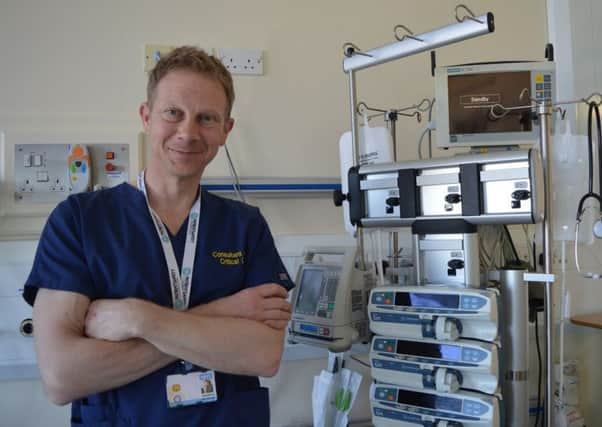My View, Richard Parker: We see more and more men in nursing


While we rightly remember these individuals’ towering contributions to health, this has meant that we, as a society, traditionally connect nursing with gender.
Although we are seeing a growth in population and a demand for more nurses, men still only make up just over 10 per cent of staff and this is something that needs to change to ensure a stable workforce in the future.
Advertisement
Hide AdAdvertisement
Hide AdIn recent years we have seen a steady rise in men entering nursing, more than in past generations. But unlike medicine, a perception still lingers that nursing is a female occupation, and it can still be hard for the opposite sex to say “I’m going into nursing”.
My career began more than 30 years ago in 1982 as my girlfriend, now wife, suggested I enter the profession. Being a male nurse at that time was more out-of-the-ordinary than now, with my nursing class only consisting of two males (myself included) out of 40 students.
Since qualifying in 1985 I’ve worked in a variety of roles and specialised in intensive care nursing. As a clinical nurse, each shift brings a new challenge but looking after patients and making a difference to people’s lives makes the hard work worthwhile.
Now as director of nursing, midwifery and quality at the Trust, I have responsibility for the quality of care we deliver to our patients and provide leadership to more than 4,000 members of staff. My time with patients is more limited than before, but I feel honoured and privileged to work alongside the dedicated men and women who make up our nursing staff who go that extra mile every day.
Advertisement
Hide AdAdvertisement
Hide AdI want to encourage Doncaster’s next generation of nurses that this is a career which shouldn’t be confined to stereotypes. Today’s nurses can now be found in a number of roles across primary care (GP practices, community care, nursing homes, health visiting and community midwifery), as well as acute (hospital-) based care.
And it doesn’t stop at the bedside, nurses now influence legislation, change how health care is delivered, they educate about preventing disease, are involved in health promotion, drive research and participate at an executive level within the NHS. It really is a wide and varied job with lots of opportunities.
So if you’re just about to leave school and looking to the future, or if you’re ready for a career change, why not consider nursing? This is a rewarding and hugely important profession that makes a difference to people’s lives every single day. If my experience is anything to go by, it’ll be one of the best decisions you will ever make.